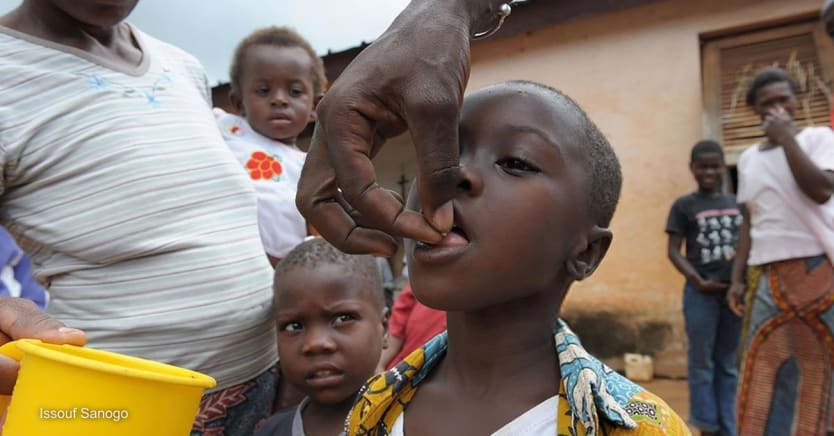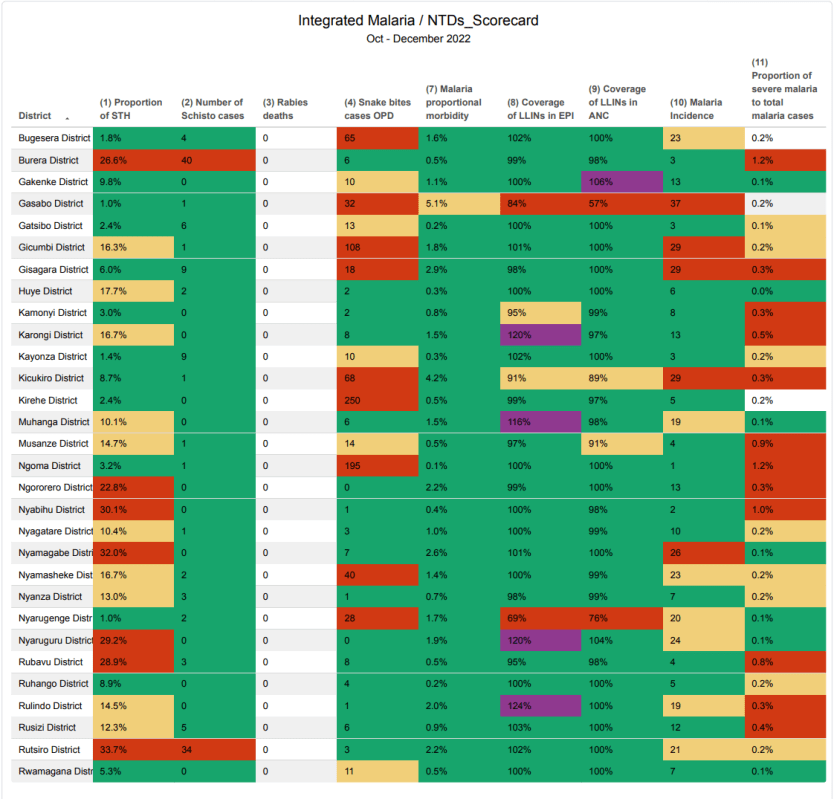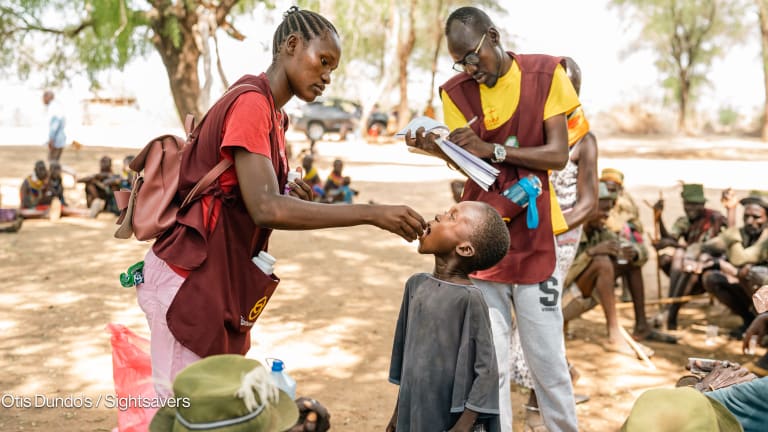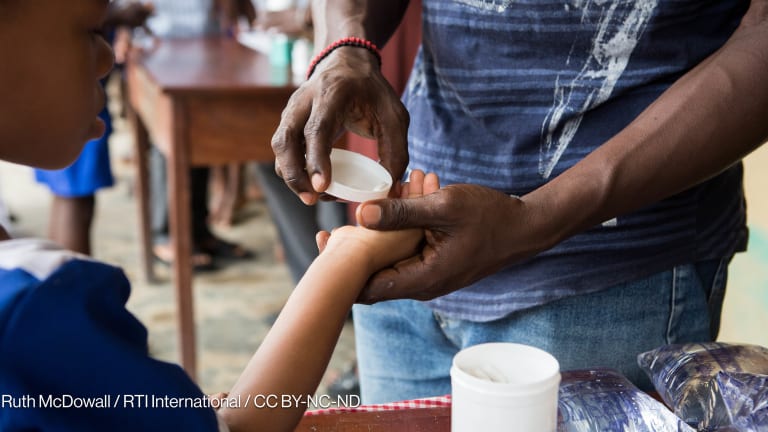
Over the past decade, Africa has made remarkable strides in the battle against neglected tropical diseases, or NTDs. So far, 19 countries on the continent have eliminated at least one NTD, with the World Health Organization reporting 18 million fewer people needing interventions. In 2022, Togo emerged as a beacon of hope as it eliminated four NTDs — Guinea worm disease, elephantiasis, sleeping sickness, and trachoma. WHO reports that Guinea worm disease is on the verge of eradication in Africa, with sleeping sickness eliminated in seven countries, while reported Buruli ulcer cases dropped by 71% from 2010 to 2021 across the continent. These milestones not only demonstrate Africa's resilience against NTDs but also fuel hope, as they are bringing us closer than ever to overcoming these devastating diseases. However, Africa still carries 40% of global NTD cases. Inadequate funding, particularly linked to the ongoing global economic turbulence, limited integration into national health programs, and the threat of climate change cast a shadow over sustained progress. Our goal to control, eliminate, and eradicate NTDs demands strengthened resolve to address this diverse group of diseases affecting the most impoverished communities with women and children suffering the brunt of the impact.
Making the fight against NTDs more sustainable
National NTD programs across our continent are predominantly reliant on external donor funding. Recent global challenges, including the unpredictability and shrinkage of funding linked to the COVID-19 pandemic and the global economic downturn, underscore the need for new and groundbreaking financing mechanisms. Sustained political commitment and action must be the spearhead for innovative health financing to complement the crucial support from our existing international partners, which has been fundamental in achieving current successes against NTDs. This collaborative effort is not only crucial to sustaining the momentum realized over decades but, more importantly, to extending wins toward the elimination of all NTDs.
The time is now for African leaders to take center stage
The time has come for African leaders to play a central role in driving country leadership and ownership of national NTD programs as well as translation of commitments into concrete action. At the 28th U.N. Climate Change Conference, or COP 28, in Dubai, United Arab Emirates, in December 2023, commitments totaling $777 million were pledged during the Reaching the Last Mile Forum. In a landmark moment, Tanzania and Sierra Leone showcased their outstanding dedication to the fight against NTDs, committing to increasing their domestic contributions. This exemplary move establishes a laudable precedent for leaders across the African continent.
National governments are duty-bound to step up their investments in NTD programs. Beyond traditional budgetary allocations, exploring innovative funding such as through taxation models becomes essential. We must leverage the potential of cross-sectoral collaboration, embracing a holistic societal approach that unites the private sector, civil society organizations, religious institutions and youth to consolidate their collective strengths and efforts against NTDs. A pioneering example emerges in my own country, Guinea-Bissau, where we launched Africa's first integrated End Malaria and NTD Council. This initiative aims to coordinate multisectoral action and mobilize domestic resources against these diseases, setting another remarkable precedent for the continent. I am delighted to share that several other countries across the continent are also working to launch their End Malaria and NTD councils this year.
Investment in NTDs is a win for equity and universal health coverage
In our pursuit of advancing global health equity and universal health coverage, or UHC, WHO's investment case for NTDs reveals a multifaceted opportunity. It is not just about treating diseases; it is an investment in strengthening health systems and reinforcing community resilience.
The individuals and communities grappling with NTDs are often the poorest and most marginalized, limiting their access to quality health services and obstructing their path to UHC. Our national governments must invest adequately in NTDs, aligning with the Continental Framework and the Common African Position on NTDs, which call for increased national funding to achieve the goal of elimination in Africa by 2030. We must also integrate NTD elimination into country efforts to achieve universal health coverage, address the threat of climate change on health, and ensure pandemic preparedness and response. This targeted investment aims to serve the most vulnerable groups, marking significant progress in our journey toward an Africa free of all NTDs by 2030. Furthermore, by diminishing the disease burden of NTDs, we can simultaneously alleviate poverty within our communities. This reduction will contribute to consolidating gains in critical areas such as hunger, education, gender equity, and inequality reduction, fostering economic growth across our nations.
Let us embrace data for evidence-informed policies and programs
We must also recognize the role of digitalization of data related to NTDs. This digital transformation enables more informed decision-making, not only about NTDs but also broader health aspects. The integration of the NTD composite indicator into the African Leaders Malaria Alliance’s scorecard is a prime example of this approach. Utilizing both continental and national NTD scorecard tools, we have been able to catalyze progress. These tools facilitate sustained accountability and action and have been instrumental in elevating the visibility of NTDs on a global, African, and country scale.

Country feedback indicates that the inclusion of the NTD indicator in the ALMA scorecard for accountability and action significantly increased the visibility of NTDs at the country level, by increasing the attention of senior leadership to NTDs. This has resulted in increased resource allocations from both government and partners. Countries such as Kenya, Rwanda, and the Republic of Congo considerably increased their domestic budgets between 2019 and 2023 while others such as Malawi and Togo eliminated more than one NTD in the same period. In addition, we recognize the achievement of countries in improving NTD data and integrating more NTD indicators into the existing health management information systems. This allows countries to access up-to-date data to drive real-time decision-making and action.
Leveraging the ‘One Health’ approach
The Africa Centres for Disease Control and Prevention champions a holistic “One Health” approach, recognizing the interconnectedness of health threats at the human-animal-environment nexus. In 2022, WHO unveiled the One Health approach for action against NTDs, while the Kigali Summit on Malaria and Neglected Tropical Diseases echoed the need for a unified approach, emphasizing integrated efforts against NTDs and malaria. Further, the African Union's Continental Framework for NTD control and elimination by 2030 underscores coordination and harmonization as catalysts for NTD elimination targets while COP 28, by spotlighting the health impacts of climate change, further solidified the call for integration. Our victories against NTDs are intricately tied to integrated strategies.
As such, the “One Health” approach holds the key to unlocking greater success in our fight against NTDs. By recognizing the broader system surrounding NTDs beyond the human health sector, we can unveil new avenues for collaboration, efficiencies, and cost savings.
Let us unite and act to eliminate NTDs
Our triumphs over the last decade have shown us that NTDs are treatable, preventable, and well within our grasp for elimination. We must ride on the promising trajectory of this fight to propel more progress. Country ownership, essential for sustainable NTD programs, coupled with investments in NTDs to promote equity and UHC, lays the groundwork for success. Embracing digitalization and a “One Health” approach for collaboration across multiple disciplines and stakeholders further paves the way for achieving the WHO NTD road map goals. By rallying together, we can reach the last mile and liberate Africa from the burden of NTDs for good.
Together, we can unite, act, and eliminate NTDs.
Visit the ALMA Scorecard Hub to explore how continental and national NTD scorecards drive NTD control and elimination efforts in Africa.








